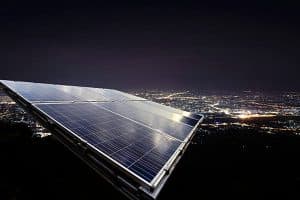Scientists state a well-designed combination of wind energy, solar power, battery and fuel cell storage could almost always provide more electricity than required at a cost comparable to today’s electricity expenses.
Research carried out by the University of Delaware and Delaware Technical Community College determined renewables could economically fully power a utility scale electric grid 99.9 percent of the time by 2030 – and without government subsidies.
Busting the myth that renewable energy is too unreliable and expensive, the report’s co-author Professor Willett Kempton said the key is to get the right combination of electricity sources and storage.
After developing a computer model to crunch 28 billion combinations of renewable energy sources and storage mechanisms, various “recipes” can be produced to determine the optimum combination of renewables. For example, to supply a 72GW capacity demand 99.9 percent of the time, it would require 17 GW of solar PV, 68 GW of offshore wind power, and 115 GW of inland wind energy, plus hydrogen for storage.
Rather than using a traditional method of matching generation to electricity use, the authors of the paper state generating more electricity than needed during average hours would be more economical than increasing storage for surplus energy for periods of high demand.
On the rare occasions when renewable electricity or stored power were not available, then fossil fuel based power generation would be called on to make up the difference.
The study used estimates of technology costs in 2030 without government subsidies and compared them to costs of fossil fuel generation widely used currently, including the documented external costs such as human health effects caused by air pollution generated by traditional power plants.
The research was published in the Journal of Power Sources in November.
Source









































